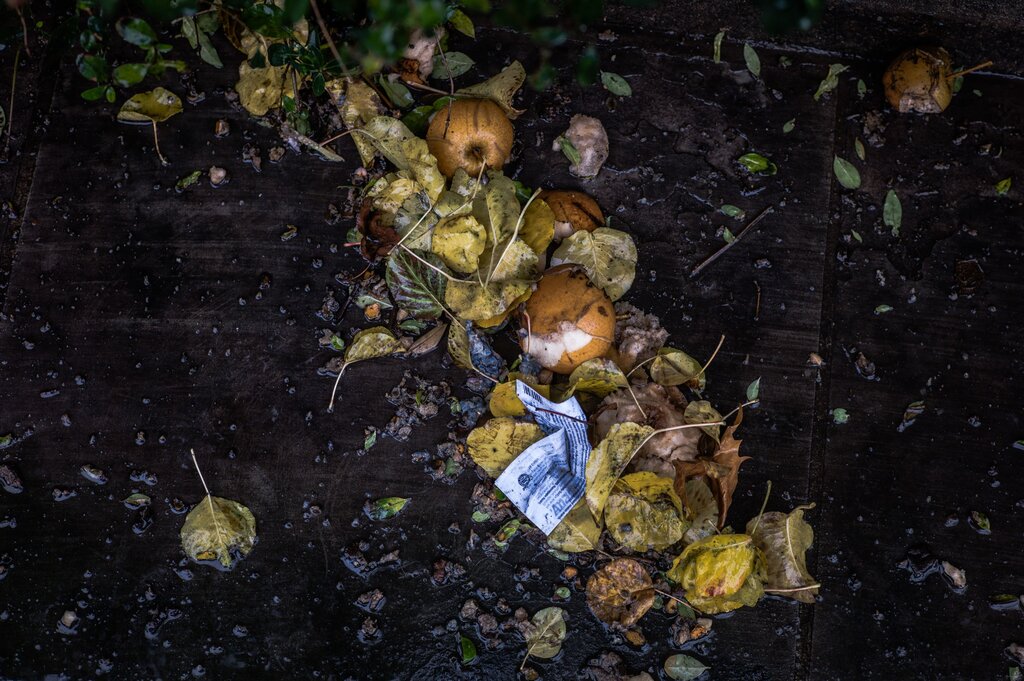The natural world has perfected the circular process, and has the ability to efficiently cycle discarded and unused resources back into nature. Here’s how we can emulate the natural process in our waste management solutions and establish a more sustainable infrastructure.
—
You may have heard it said that nature is everywhere, for it is a cliché that actually rings true. From an eco-centric point of view, everything on Earth is technically “natural.” SFEnvironment accurately sums up this concept: “From the ancient pyramids of Egypt to rockets in space, everything human beings have ever made or used comes from natural resources.”
Our factories were built with natural resources and materials, even as they emit harmful pollutants. The various products we create and consume, including artificial food additives, synthetic fabric, and beyond, are rooted in nature and its raw materials. Humanity’s relationship with nature though precarious, especially so at the moment, can be improved upon because nature knows no waste: To help lessen pollution and reduce the impact of climate change, we must look to the natural world for inspiration in our waste management solutions.
As humanity continues to rely on Mother Nature to propel society forward, we must consider the efficiency of natural processes. There’s no such thing as waste in the natural world; rather, discarded and unused resources are cycled back into nature in some form. No matter where you live, or the products you consume, you can take a similar approach in your life to cultivate a more sustainable mindset, at both the individual and community levels.
Here’s what you need to know about how humanity can emulate nature in regards to how we treat waste.
The Global Waste Problem and Waste Management Solutions
Typically defined as the useless consumption or expenditure of a concept or resource without a return, waste has become an integral part of everyday life. Every day, people around the world discard mountains of packaging, food waste, unwanted textiles and household goods, and other forms of refuse. Around the world, waste generation numbers are staggering, and high-income countries, including the United States, are especially culpable.
According to recent data from the Environmental Protection Agency (EPA), Americans generated 292.4 million tons of municipal solid waste (MSW) in 2018. That equals nearly five pounds of waste per person, every day. What’s more, about half of MSW in the US ends up in landfills, where it can never be reused or repurposed.
You’d be hard-pressed to find such wasteful habits within the natural world, where helpful organisms known as detritivores break down nutrients and recycle them. The bulk of the world’s detritivores are insects, earthworms, and woodlice, but fungi also break down organic matter, releasing various nutrients back into the soil. So if you’re actively looking for ways in which to reduce your own waste, try to channel your inner detritivore.
Looking to Nature for Inspiration
Giving detritivores the credit they deserve is just the beginning to emulating nature. The good news is that inspiration for the mindful treatment of waste can be found throughout the natural world. And as you work to integrate the lessons of the natural world into your own life, the best strategy to begin with, is observation.
Spend ample time outdoors, paying particular attention to decaying matter and materials you consider to be waste, man-imposed or otherwise. What processes do you observe? Where does human-generated waste, such as soda bottles and other single-use plastics, fit into the overall picture?
You might also like: Op-Ed: How Can We Achieve a ‘Zero Waste’ Future?
Waste reduction processes are just the beginning to the lessons you can glean from the natural world, however. Nature can also be a powerful tool for healing, and forward-thinking healthcare professionals around the world have taken notice. In greater numbers, physicians and psychiatrists are prescribing nature to treat several mental and physical health conditions, from obesity to anxiety and depression.
There’s plenty of evidence linking the great outdoors to improved health and wellbeing. But, much like pharmaceutical prescriptions, the effectiveness of nature as a medication is largely dependent on the individual being treated. If you’re already tuned in to the natural world and its processes, you’re more likely to reap the healing benefits of nature, no prescription required.
Living a Zero Waste Life, Into the Future
On the forest floor, nothing goes to waste. Over millennia, humans have observed how everything has a purpose in the natural world. The fallen leaves of deciduous trees eventually decay into compost, enriching the soil for future generations of trees, shrubs, and wildlife. Through the observation of decomposition and various other natural processes, the concept of zero waste living was born.
While it’s generally understood that producing absolutely no trash in the modern world is unrealistic at best, you can still take strides to significantly reduce household waste. When working to adopt a zero-waste lifestyle, start small, changing one room or wasteful habit at a time. Buying food in bulk to reduce packaging, choosing secondhand clothing, and repairing broken household items rather than discarding them, are just a few small changes that can have a significant environmental impact.
In the search for viable waste reduction solutions, you should also be mindful of where your spending money goes. In a world wherein consumerism and pollution are rampant, you can make a big difference by supporting ethical businesses that prioritise sustainability. Utilise your observational skills, and make sure to do some research on the waste production numbers of your favorite companies and brands.
Key Takeaways
Even in our technologically advanced society, humans cannot exist without nature and the resources it provides. As we work towards a zero-waste future, the natural world still has lessons to teach us. By observing how nature reuses and eliminates waste, and adopting similar practices, we may be able to improve the health of the planet and its citizens over the long term.
Featured image by: Del Barrett/Unsplash
You might also like: 4 Smart Waste Management Solutions That Are Revolutionising the Industry


















